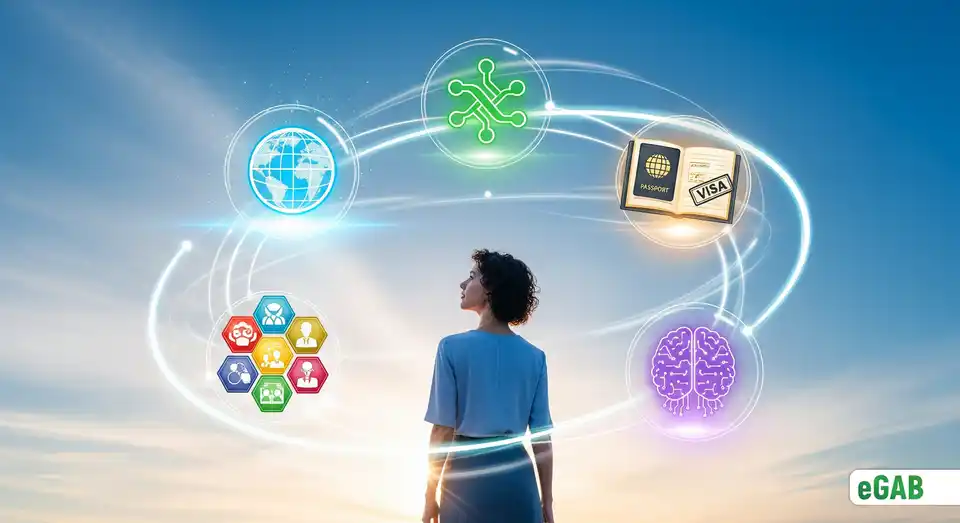The Future of Digital Documents AI, Micro-Credentials, and Global Integration
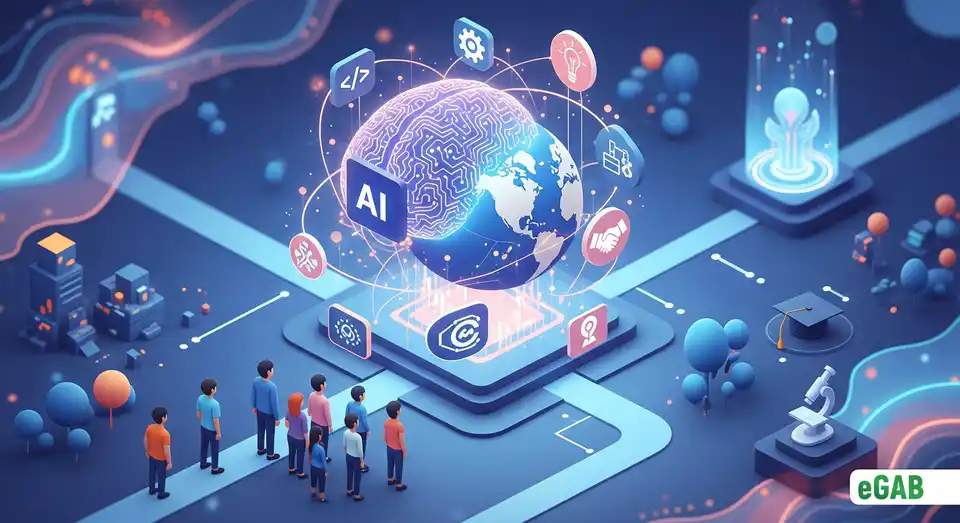
 Author:
Artem Grigoriev
Author:
Artem Grigoriev
The Global Digital Credentials Management Program isn't a static endpoint-it's a foundation for the future. As technology speeds up and international cooperation gets stronger, educational credentials are set for a game-changing transformation.
This article dives into the key trends shaping the future of digital documents. We'll explore the role of artificial intelligence, the rise of micro-credentials, and the push for true global integration.
📘 This post is part of our comprehensive guide to "The Global Digital Credentials Management Program". Explore it to find answers to all your questions ;)
Will Digital Credentials Become Truly Global?
What good is a degree or a professional certificate if it loses its value the second you cross a border? This isn't a hypothetical question for millions of talented people; it's a deeply frustrating reality they face all the time. The next great ambition for The Global Digital Credentials Management Program is to tear down these invisible walls. We'll achieve this through a major geographic expansion, with a plan focused on bringing developing nations into the global fold.
The core idea is both simple and powerful: giving people access to verifiable digital credentials can be a catalyst for developing human capital. For example, imagine a programmer from a small town who aces a tough online certification. With a verifiable digital credential, her skills can be instantly recognized across borders, letting a company on another continent confirm her expertise. This unlocks life-changing opportunities that were once unimaginable. This is about more than just convenience; it's a direct path to fighting inequality and sparking economic growth, which shows you exactly who benefits from digital documents and ensures that what truly matters is talent, not geography.
However, a truly global system can only succeed if everyone can access it. This brings us to the biggest challenge of all: we must bridge the digital divide, as outlined by the United Nations . Think about it: a credential stored on the blockchain is useless to someone without reliable internet. It’s also useless if they don't have the digital skills to manage it. For this reason, a core part of this global expansion isn't just about technology. It's fundamentally about building infrastructure and promoting education. Pushing for equitable access means championing initiatives for underserved communities. Around the world, these programs provide connectivity, affordable devices, and essential digital skills training. Without this solid foundation, we risk creating a new system that only benefits the privileged.
A truly global credentialing system does far more than simplify paperwork; it has the massive potential to unlock trillions in economic value by connecting untapped talent with global opportunities. Making this system inclusive isn't a secondary goal. It's the only way to ensure this future is more equitable than the past.
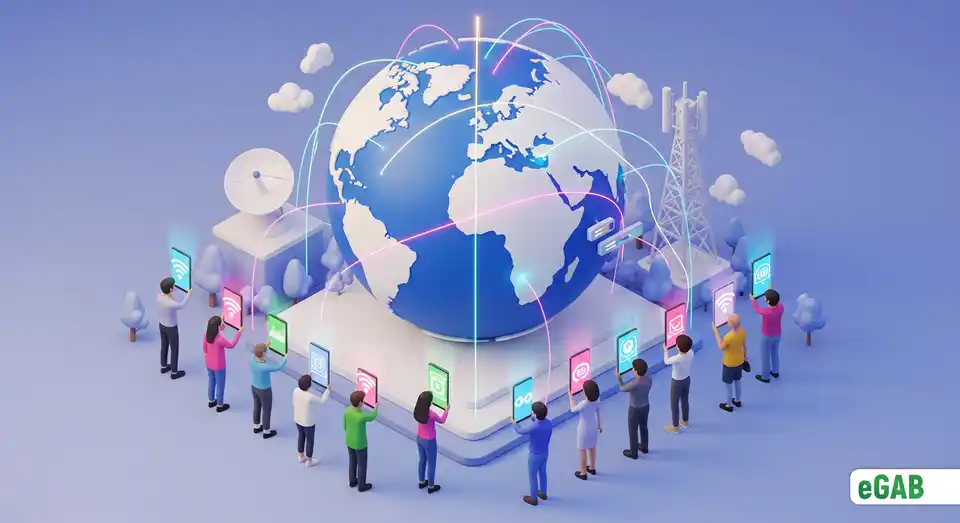
What New Services Will Emerge?
When your credentials can be trusted and shared anywhere in the world, they completely transform. They stop being static, dusty records of your past and become dynamic, living documents . These incredible documents evolve right alongside you, capturing your professional growth in real time. This massive shift is the key that unlocks a whole new ecosystem of services, much like the one detailed in the case study of the eGAB ecosystem, all designed to help you navigate your career and education with complete clarity.
Think about the job hunt today-it's often a frustrating guessing game of keywords. But in a world with standardized digital credentials, we'll see intelligent platforms rise to the top. These platforms will deliver automated, skills-based job matching . Instead of just scanning for job titles, these systems will understand the specific, verified skills you hold in your digital wallet. Then, they’ll connect you directly with employers searching for your exact expertise. It’s a fundamental change. You'll go from hunting for a job to having the right opportunities find you.
This new ecosystem will also completely change how you learn. You won't have to guess which course will best boost your career. Instead, you'll get AI-driven course recommendations . These intelligent suggestions will be tailored just for you. By analyzing your existing skills and career goals, they'll suggest the perfect learning paths to close skills gaps and get you where you want to go. The benefits extend directly into formal education, too, creating seamless, automatic university credit transfer systems . The bureaucratic nightmare of proving your course credits disappears when your verified learning history can be instantly transferred and accepted.
For professionals, this makes continuous development a trackable reality. We can expect to see sophisticated CPD platforms . That stands for Continuing Professional Development. These platforms will track your real-time lifelong learning . Every new certification, corporate training module, and skill you gain will be instantly added to your permanent record. This ensures your professional profile is always up-to-date and complete.
This isn't just about convenience. It’s about empowerment. When your skills and achievements become part of a dynamic digital ecosystem, you gain the power to make smarter, data-driven decisions. You get to choose your own career path and ensure every step you take is a strategic move forward.
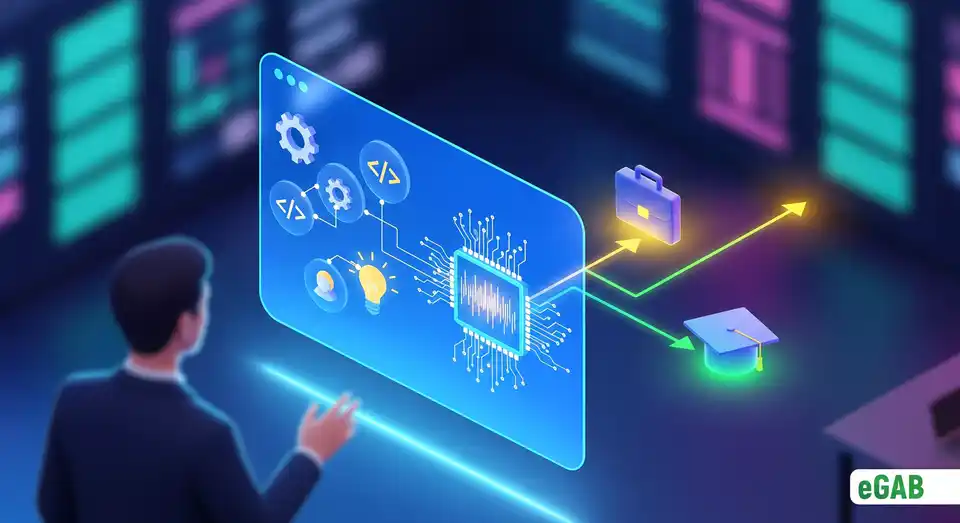
How Will Credentials Integrate with Government Systems?
So far, we’ve seen how digital credentials empower you personally and professionally. But what happens when they plug into the biggest system of all: the government? A huge development is coming, and it’s the deep integration of your digital skills portfolio with official, state-run systems. This is the moment your personal achievements get official, national recognition. It builds a powerful and direct link between you and the state.
Imagine a future where your verified skills are recognized automatically. They would be accepted by national eID schemes (government-issued electronic identification systems), working just like your driver's license or passport. This connection would also link to national educational registries. Plus, it would connect with National Qualification Frameworks (NQFs) -the official guides governments use to understand and value different kinds of learning. So, when your micro-credential for data analytics is understood within that national framework, it immediately gains tremendous authority and value.
This deep integration is the key. It’s how we’re creating what many now call a “Learner and Skills Passport.” You can think of it as your ultimate, living record. This isn't a static collection of PDFs or paper certificates; it’s a single, trusted, and dynamic profile. This profile provides a holistic view (a complete picture) of your entire educational and professional life. Everything, from your high school diploma to the latest corporate training, will live together in one secure, government-recognized space. And let's be clear: this isn't just a distant dream. Groundbreaking initiatives like Europe's Europass platform are already laying the foundation, showing exactly how this can work on a continental scale.
The final goal is to create a truly seamless user experience for every stage of your life. Applying for a public sector job could become an instant process. The same goes for enrolling in a postgraduate program or renewing a professional license. Everything would be completely frictionless. The endless paperwork and frustrating verification delays that define so many of our interactions with official agencies would simply disappear.
This integration is about far more than just convenience. When your skills passport is linked to official systems, it builds a powerful bridge of trust connecting you, potential employers, and the government. It ensures that your hard-earned qualifications aren't just portable; they're also officially recognized and valued wherever you go, both in your home country and abroad.
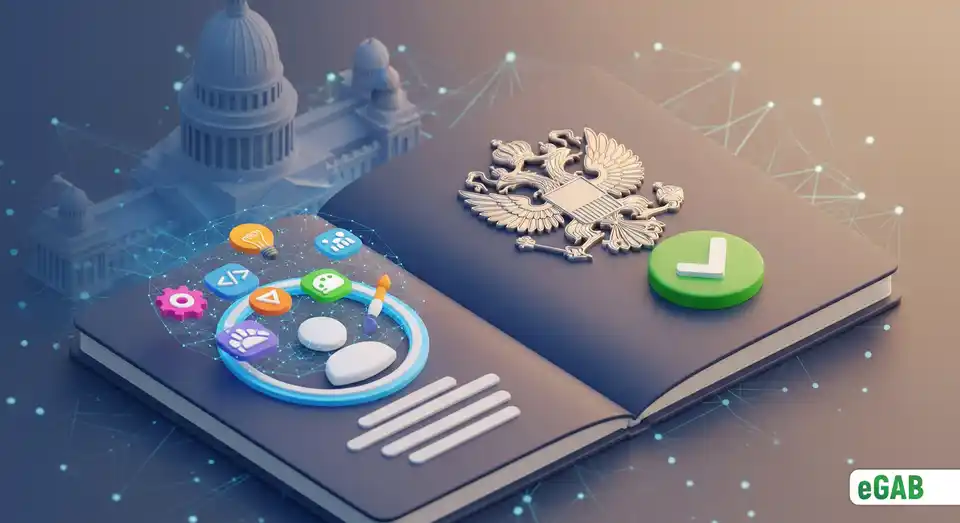
How Will We Recognize Skills Beyond Traditional Degrees?
For generations, the university degree was the gold standard of achievement-the main key to unlocking professional opportunities. But what about all the other valuable skills you have? Maybe you learned them while leading a tough project at work, or perhaps you taught yourself a new programming language on the weekends. It could be you just finished a specialized online course. The future of credentialing is expanding fast, and it will finally give formal recognition to powerful learning that doesn't just happen in a lecture hall.
This is where the landscape gets truly exciting. We're actively developing robust standards for all kinds of new types of learning achievements . The most prominent and promising of these are micro-credentials and digital badges. It's important you don't think of these as replacements for traditional degrees. Instead, you should see them as focused, easily verifiable records that certify a specific skill or capability you've mastered. For these new credentials to hold real value, they must be built on a foundation of trust. That’s why having global standards is so critical. A perfect example of this is the Open Badges 3.0 specification from 1EdTech . This crucial standard ensures a badge is much more than a digital image; it's a secure, data-rich file. It contains detailed information about who issued it, shows exactly what you did to earn it, and clearly defines the skills it represents, making it instantly verifiable by anyone.
This new framework opens the door to something even more revolutionary. We can now build systems designed to validate the outcomes from non-formal and informal learning . That weekend bootcamp you took to sharpen your skills, the public speaking abilities you honed at a local club, or the complex data analysis you mastered on the job-all of this is real, valuable learning. Now, it can finally be captured and get the official recognition it deserves. This evolution marks a huge shift towards a model of competency-based education . In this model, the focus is less on where you learned something and much more on what you can actually do with that knowledge. It’s a model that perfectly meets the needs of a modern, agile workforce. This is especially true in the fast-paced "gig economy," where proving you have the right skills for the next project is what truly matters most.
Your career is far more than just a list of job titles. It’s a rich and diverse portfolio of all the skills you've learned throughout your life. By recognizing all forms of learning, we can create a much more powerful and complete picture of your unique capabilities. This, in turn, gives you countless new ways to show your true value to potential employers and collaborators.
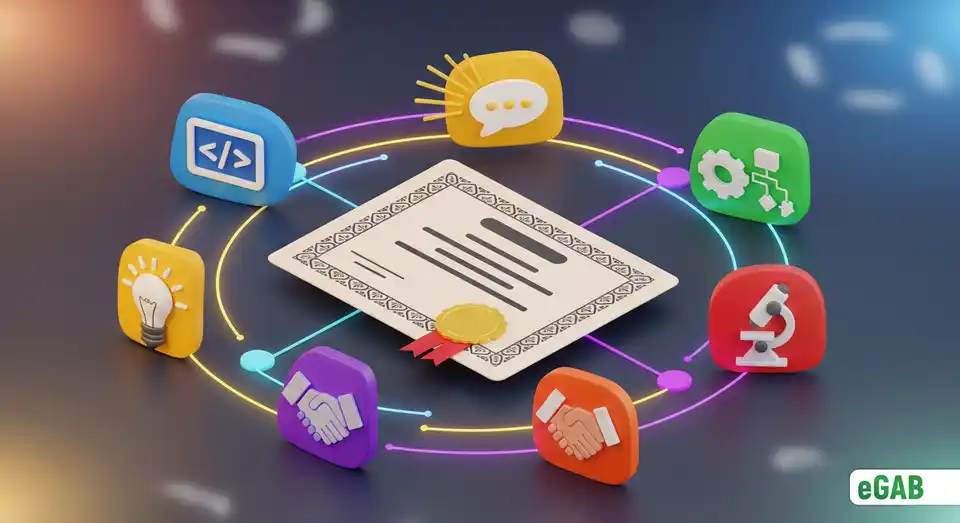
What Role Will Artificial Intelligence Play?
As we build this globally connected digital document ecosystem for credentials, you might be wondering, what's running the show? You can think of artificial intelligence as the powerful engine driving everything under the hood. But AI does more than just make things faster; it will unlock transformative new capabilities that are simply impossible today. Its biggest impact will be turning massive amounts of data into actionable intelligence. This intelligence is designed to benefit you directly as an individual while also significantly helping entire economies.
For instance, imagine an AI performing intelligent skills mapping (the process of identifying and charting a person's skills) on a global scale. Instead of just matching keywords on a resume, this AI would analyze the rich data within your digital credentials-from specialized micro-credentials to full university degrees. This deep analysis would let the AI truly understand the substance and depth of your qualifications. What’s more, this very same technology is also our most powerful defense against sophisticated document fraud-one of the main problems of paper and digital documents the program is designed to solve. We're talking about fighting the creation of highly convincing fake documents. We can train advanced AI algorithms to detect the subtle patterns and inconsistencies in forgeries that would likely fool even a trained human eye.
On a broader, macroeconomic scale, AI will give policymakers a real-time dashboard that shows a country's human capital. By analyzing aggregated and anonymized credential data, they can spot emerging workforce skills gaps (a mismatch between the skills employers need and the skills the workforce actually has). This critical insight allows governments and educational institutions to catch these gaps long before they turn into critical shortages. This, in turn, fuels proactive and strategic planning for education and training, which is one of the 6 key objectives of The Global Digital Credentials Management Program. The benefits of this system, however, flow right back to you as an individual. This is the very intelligence that will power truly personalized career and learning recommendations , guiding you toward the fastest and most effective paths to achieve your personal and professional goals.
But let's be crystal clear about something crucial: handing these critical functions to AI comes with an immense and unavoidable responsibility. As the OECD aptly notes in its principles for trustworthy AI , we can't just deploy these powerful tools without strong guardrails, as the potential for harm is far too great. This is exactly why we need robust ethical frameworks , guided by the program's foundational principles, to ensure technology is used responsibly. It's vital to understand that developing them isn't an optional add-on; it's a core requirement of this entire project. These frameworks are absolutely essential to ensure fairness, promote transparency in how decisions are made, and, critically, prevent algorithmic bias (systematic errors in a computer system that create unfair outcomes) from infecting vital processes. We must diligently stop this bias from creeping into life-altering decisions like university admissions and hiring. Without these essential ethical
checks and balances, we risk building a future that accidentally automates the very inequalities we’re trying so hard to solve.
The biggest challenge with AI isn't the technology itself-it's our collective ability to govern it. Building systems that are transparent and fundamentally fair is absolutely critical. That's how we earn and keep public trust. The ultimate goal has to be ensuring that AI serves everyone equitably, not just the people who design it. It must create opportunities that are both data-driven and genuinely equal for all.
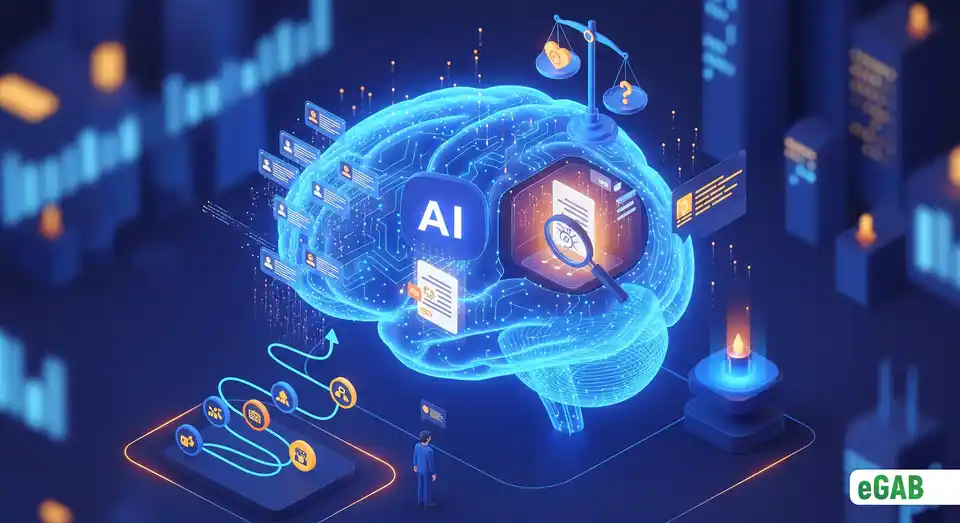
Summary: A Glimpse into the Future of Learning and Work
As we look to the future, all the ideas we've explored start to connect, weaving together a clear vision. The future of academic and professional achievement isn't just about adopting better technology; it's about building a truly global, trusted, and efficient digital ecosystem. The Global Digital Credentials Management Program is at the very heart of it all. A few powerful and interconnected trends define the path forward.
This journey starts with true globalization . This is a powerful force for smashing the geographic barriers that have historically held talent back. It’s focused on expanding access to verifiable credentials for everyone, no matter where they are.
These credentials will no longer be simple, static records of your past. Instead, they're set to become dynamic services . Think of them as living documents, designed to power intelligent job matching and give you personalized learning recommendations. We unlock their full potential through deep integration with national systems. This integration makes it possible to create seamless "Skills Passports," which give your achievements official and widespread recognition.
Furthermore, this new ecosystem is built on a solid foundation of inclusivity . It finally establishes a framework that can recognize all forms of learning. This covers everything from traditional degrees and vital micro-credentials to the informal skills you learn on the job. Intelligence is the engine driving this entire transformation. We're skillfully harnessing AI to boost efficiency, security, and personalization, all while guiding it with strong ethical principles to guarantee fairness and trust.
When you step back and see the bigger picture, you realize this is more than just a technological shift. It represents a profound sociocultural transformation . We're in the process of fundamentally redefining our relationship with education, career development, and lifelong learning. By putting a square focus on verifiable skills , we empower you, the individual, making you the true owner of your accomplishments. The bottom line is this: we are actively building a future where your potential can be fully unleashed.
➡️ Let's get practical. After exploring future possibilities, it's powerful to see how the GDCP standards are being applied right now in the real world. Dive into our case study on the eGAB ecosystem's implementation.
